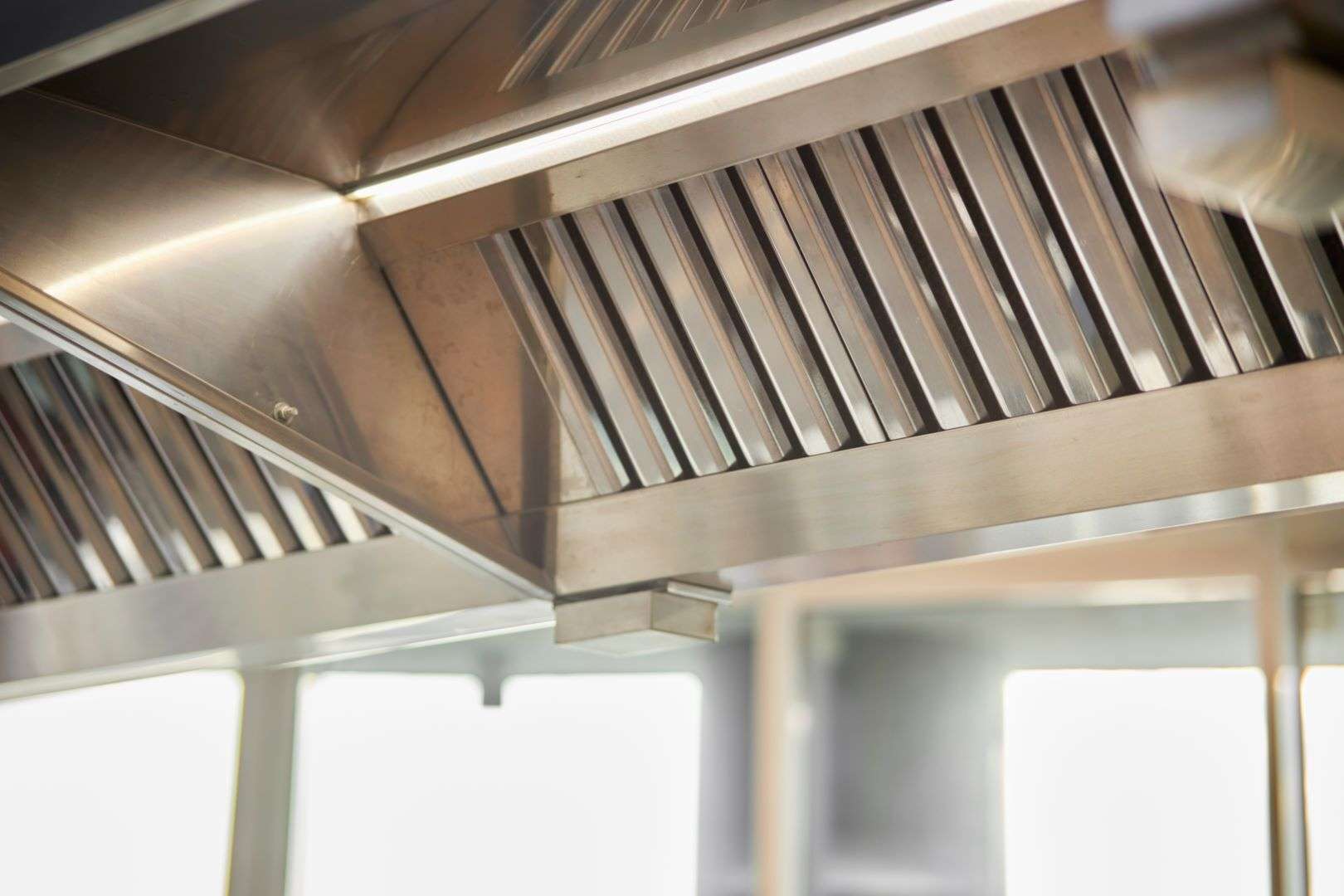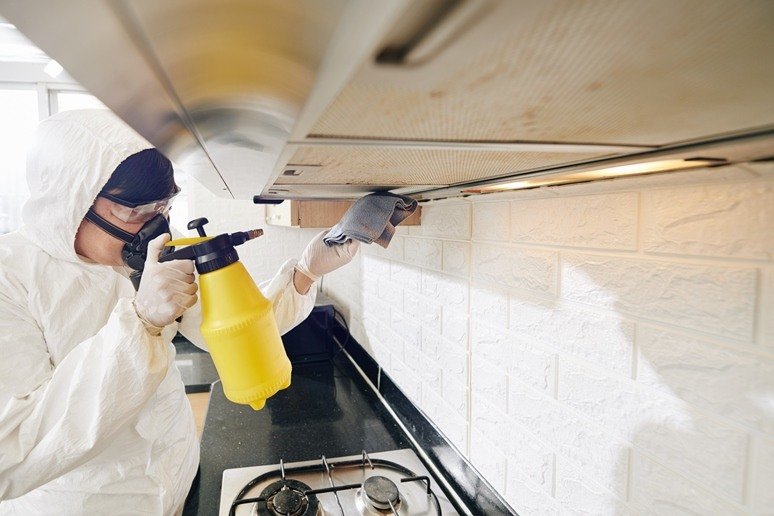Have you ever wondered how often your commercial kitchen hoods should be cleaned? If you’re like most restaurant owners or managers, it might not be the first thing on your mind.
Yet, neglecting this crucial task can lead to serious problems. Imagine your kitchen running smoothly, your staff efficiently serving delicious meals, and then suddenly, an unexpected fire disrupts everything. It’s a nightmare, right? Ensuring that your kitchen hoods are cleaned regularly not only prevents such disasters but also keeps your kitchen smelling fresh and your equipment functioning at its best.
You’ll discover the importance of regular hood cleaning and learn the best practices for maintaining a safe and efficient kitchen environment. We’ll provide you with expert tips and insights into how often this task should be tackled, helping you avoid costly repairs and health violations. Let’s dive into the specifics and ensure your kitchen remains the thriving hub of your business.
Importance Of Kitchen Hood Cleaning
Kitchen hoods play a crucial role in commercial kitchens. They remove smoke, grease, and odors. Regular cleaning keeps the air fresh and safe. Grease buildup can lead to fires. Cleaning reduces this risk.
Dirty hoods affect air quality. They can spread contaminants and odors. Proper maintenance ensures a healthier environment. It also improves the efficiency of the hood.
Fire Risk Reduction
Grease accumulation is a major fire hazard. It can ignite from the heat of cooking. Regular cleaning removes this risk. It keeps your kitchen safe from potential fires.
Improved Air Quality
Dirty hoods trap grease and smoke. This affects the air quality in the kitchen. Clean hoods provide a fresher atmosphere. Workers breathe easier and feel better.
Compliance With Health Regulations
Health regulations require clean kitchen equipment. Regular cleaning helps meet these standards. It ensures compliance and prevents penalties. Keep your kitchen up to code.
Enhanced Efficiency
A clean hood works better. It removes smoke and odors efficiently. This improves the overall kitchen environment. Workers perform better in a cleaner space.

Credit: www.averusfireservices.com
Factors Influencing Cleaning Frequency
Cleaning frequency for commercial kitchen hoods depends on cooking volume, type of food prepared, and local regulations. High-use kitchens may need monthly cleanings, while smaller operations might require less frequent maintenance. Regular cleaning ensures safety and efficiency.
Factors influencing the cleaning frequency of commercial kitchen hoods are crucial. They determine safety and efficiency in the kitchen environment. Understanding these factors helps maintain hygiene and prevent fire hazards. Let’s explore these influencing factors more closely.Type Of Cooking
Different cooking styles impact cleaning needs. Frying generates more grease than boiling. Grilling and roasting produce smoke and residues. These residues accumulate in the hoods. Frequent cleaning is needed for kitchens with high grease production. This reduces fire risk and maintains air quality.Volume Of Cooking
High-volume cooking means more residues. Busy kitchens operate for long hours daily. This leads to faster accumulation of grease and smoke. The hoods must be cleaned frequently. Regular cleaning ensures efficient operation. It also prevents unpleasant odors and potential hazards.Type Of Fuel Used
The type of fuel affects residue buildup. Gas stoves produce more fumes than electric ones. Wood and charcoal generate smoke and soot. These particles collect in the hoods over time. Cleaning frequency increases with certain fuels. Clean hoods ensure proper ventilation and safety.Recommended Cleaning Intervals
Keeping your commercial kitchen hoods clean is crucial for maintaining a safe and efficient kitchen environment. Grease and grime accumulation can lead to serious hazards like fires. So, how often should you clean them? The answer varies based on your kitchen’s usage intensity. Below, we break down recommended cleaning intervals for different types of kitchens to help you make informed decisions.
Light Use Kitchens
In kitchens where cooking is infrequent or involves minimal grease, such as cafes or small coffee shops, the hood might not need as frequent cleaning. You might find that cleaning every six months is sufficient. But always be vigilant. Check for grease build-up regularly to determine if you need an earlier cleaning. Have you ever noticed an unexpected sticky residue during a routine inspection? It might be time to revise your schedule.
Moderate Use Kitchens
For restaurants operating at a moderate level, with regular cooking but without heavy frying or grilling, quarterly cleaning is usually recommended. This ensures that grease accumulation doesn’t get out of hand. Think about your last big event or holiday rush. Did your kitchen seem busier than usual? During peak times, consider more frequent checks to keep everything in top shape. It’s all about balancing safety with efficiency.
Heavy Use Kitchens
Kitchens in fast-food outlets, or those that handle a lot of frying and grilling, face high grease build-up and should be cleaned monthly. This might seem frequent, but it’s essential for preventing fires. Have you ever felt the heat of a busy grill station during lunch hour? Imagine how quickly grease builds up. Consistent monthly cleaning keeps your kitchen safe and running smoothly. It’s not just about cleanliness—it’s about avoiding costly emergencies.
Ultimately, the key is to tailor your cleaning schedule to your kitchen’s specific needs. Regular inspections are your best friend in determining the right intervals. Remember, a clean hood is not just a regulation requirement; it’s a crucial part of your kitchen’s safety and efficiency. When was the last time you checked your kitchen hood? Maybe it’s time for a closer look.
Signs Your Kitchen Hood Needs Cleaning
Grease buildup and strange odors signal the need for a kitchen hood cleaning. Regular cleaning every three months is ideal for commercial kitchens. Ensures safety and efficiency.
Keeping your commercial kitchen in top condition requires regular maintenance, especially when it comes to cleaning the kitchen hood. But how can you tell when it’s time to roll up your sleeves and get to work? Recognizing the signs that your kitchen hood needs cleaning can prevent bigger problems down the line. Let’s dive into what you should be looking out for.Visible Grease Buildup
One of the most obvious signs that your kitchen hood needs cleaning is visible grease buildup. If you see thick layers of grease on the hood’s surface, it’s time to clean. Regularly wiping down the hood can prevent this, but once it becomes noticeable, a deep clean is necessary. Neglecting this can lead to fire hazards. It’s not just about aesthetics; safety is a priority.Unpleasant Odors
Have you ever noticed a lingering smell in your kitchen that just won’t go away? This could be a sign that your kitchen hood is overdue for cleaning. Grease and food particles trapped in the hood can start to smell over time. If a thorough wipe down doesn’t eliminate the odor, it’s likely time for a professional clean. Imagine how much better your kitchen would smell with regular maintenance.Decreased Airflow
Your kitchen hood is designed to keep the air in your cooking space clear and fresh. If you notice steam and smoke are not venting as effectively as they used to, decreased airflow might be the culprit. A clogged or dirty hood restricts airflow, making your kitchen less comfortable to work in. Feeling the heat more than usual? It might be time to clean your hood to restore efficient airflow. Cleaning your commercial kitchen hood is not just a task, it’s an essential part of maintaining a safe and efficient kitchen environment. Are you noticing any of these signs in your kitchen? Addressing them promptly can save you time and trouble in the long run.Consequences Of Neglecting Hood Cleaning
Regular cleaning of commercial kitchen hoods prevents fire hazards and ensures efficient ventilation. Neglect leads to grease buildup and increased fire risk. Schedule cleaning every three months for safety and compliance.
Neglecting hood cleaning in commercial kitchens can lead to serious consequences. Dirty hoods accumulate grease and debris, posing risks to safety and health. Regular cleaning is crucial for the smooth operation of any kitchen. Let’s explore the dangers of ignoring this essential maintenance.Fire Hazards
Grease build-up in kitchen hoods increases fire risk. A single spark can ignite the grease, leading to a dangerous blaze. Fires in kitchens spread quickly, endangering lives and property. Regular cleaning reduces the chances of such incidents. Clean hoods enhance the safety of your kitchen environment.Health Risks
Dirty hoods harbor bacteria and mold. These contaminants affect air quality, leading to respiratory issues. Staff and customers might suffer from allergies or asthma. A clean hood ensures better air circulation and a healthier workspace. Protecting health should be a priority for every kitchen manager.Compliance Issues
Health and safety regulations demand clean kitchen hoods. Ignoring these rules can result in penalties or shutdowns. Inspections might lead to fines if standards are not met. Regular hood cleaning keeps your kitchen compliant and operational. Stay ahead by maintaining cleanliness and adhering to regulations.
Credit: safekitchens.com
Professional Vs. Diy Cleaning
Maintaining a clean commercial kitchen is crucial for safety and hygiene. A key component is the kitchen hood, which requires regular cleaning. Business owners often face the choice of professional cleaning or tackling the task themselves. Both methods offer unique advantages and drawbacks. Understanding each can help you make an informed decision.
Benefits Of Professional Services
Professional cleaners bring expertise and specialized equipment. They ensure thorough cleaning, reaching hidden areas. This reduces fire hazards and improves air quality. With professionals, compliance with health regulations is easier. Their work often comes with a satisfaction guarantee. This adds peace of mind for business owners.
Cost Considerations
Professional cleaning services come with a cost. Prices vary based on kitchen size and condition. While the upfront cost may seem high, it can prevent expensive repairs later. Weigh the cost against the time and effort of DIY cleaning. Also, consider potential fines from health inspections.
Diy Cleaning Tips
If you choose DIY cleaning, start with the right tools. Use degreasers and scrapers for effective cleaning. Ensure the power is off before starting. Focus on visible areas and accessible parts of the hood. Don’t forget filters, they need attention too. Regular cleaning keeps dirt and grease manageable. Always wear protective gear for safety.
Best Practices For Maintaining Clean Hoods
Maintaining clean hoods in commercial kitchens is essential for safety. Dirty hoods can cause fires or health issues. Regular cleaning ensures safe and efficient kitchen operations. It prevents grease buildup and maintains air quality. Here are the best practices for keeping your kitchen hoods clean and safe.
Regular Inspections
Inspect hoods frequently for grease and debris. Check filters and fans for blockages. Ensure that exhaust systems are functioning properly. Regular checks help prevent major issues. They also extend the life of your equipment.
Staff Training
Train staff on hood cleaning procedures. Teach them how to spot potential hazards. Proper training ensures everyone knows their role. It reduces the risk of accidents. Staff should understand the importance of clean hoods.
Use Of Proper Cleaning Agents
Choose cleaning agents that are effective and safe. Avoid harsh chemicals that can damage equipment. Use products designed for commercial kitchen use. Ensure cleaners are stored properly. Proper agents help maintain the hood’s efficiency.

Credit: boh.ai
Frequently Asked Questions
How Frequently Should Kitchen Hoods Be Cleaned?
Commercial kitchen hoods should ideally be cleaned every three months. Regular cleaning ensures optimal performance and reduces fire risks. The frequency might vary based on usage levels and cooking types. Heavy grease accumulation requires more frequent cleaning to maintain safety standards.
What Signs Indicate Hoods Need Cleaning?
Signs include excessive grease buildup, reduced airflow, and unpleasant odors. Smoke lingering longer than usual is also a sign. Regular inspections help identify these issues early. Addressing them promptly ensures a safer and more efficient kitchen environment.
Can Dirty Hoods Affect Kitchen Air Quality?
Yes, dirty hoods can significantly impact air quality. Grease buildup reduces ventilation efficiency, leading to poor air circulation. This can result in unpleasant odors and potential health risks. Regular cleaning ensures proper airflow and a healthier kitchen atmosphere.
Are Professional Cleaning Services Necessary?
Professional cleaning services are highly recommended. They have the expertise and equipment to clean thoroughly. DIY methods might miss critical areas or cause damage. Professionals ensure compliance with safety standards and extend the lifespan of kitchen hoods.
Conclusion
Regular cleaning keeps kitchen hoods safe and efficient. Dirty hoods can lead to fires or health issues. Cleaning should be monthly for busy kitchens. Less active kitchens might need cleaning every three months. Always follow local regulations and industry standards.
Check the hood’s filters and fans regularly. Professional cleaning ensures thoroughness and compliance. A clean hood improves air quality. It also prolongs the equipment’s life. Invest in routine maintenance. This saves money and reduces risks. Remember, clean hoods mean safer kitchens.
Prioritize cleanliness for peace of mind. Keep your kitchen running smoothly.

As the chief content writer, Hassan Al Sarker works as a professional kitchen-based content creator at Kitchen Liker.
In addition to reviewing the content published on Kitchen Liker, he ensures that it is accurate, relevant, and helpful. As a result, all the reviews and information published at Kitchen Liker are neutral and userfriendly.
Hassan Al Sarker has a bachelor’s degree in Hotel and Tourism Management From the Newyork University. Before joining Kitchen Liker, he was a contributor at Kitchen Club, United States.

